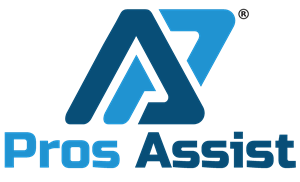If you’re self-employed, then it’s incredibly important to know your expenses when it comes to filing your annual taxes. Naturally as a business you will have various running costs that need to be accounted for, but there are some that are allowable expenses. These can be deducted from your business income to calculate your taxable profit, which is the remaining figure once allowable expenses have been deducted.
Sound simple right? Well it is if you know what these allowable expenses are and how to calculate them. We’ve put together a simple guide on expenses that includes those you can claim for and those you can’t, which should make putting in your tax form more straightforward.
Allowable Expenses – What Are They?
First of all it’s important to clarify that with allowable expenses you can’t claim any private purchases, even if money was taken from the business to pay for them. Below is a list of the allowable expenses, to give a clear outline on what you should claim.
Office Costs:
This includes items like stationery, Internet; phone, mobile, email, small office equipment and computer software. It doesn’t include computer hardware, personal or non-business usage costs for phones etc.
Travel Costs
This includes fuel, car insurance, service and repair costs, along with business travel such as train, bus, air and taxi fares, hotel rooms and meals. You can’t claim for the personal portion of use with vehicles, for the cost of purchasing the vehicle or travel costs between home and business.
Staff Costs
This includes staff wages, bonuses and benefits for employees, as well as subcontract labour costs and employers’ NICs. It doesn’t include your own wages, pensions or NICs.
Clothing Expenses
If your staff wear uniforms or specialist safety clothing you can claim this as an allowable expense.
Cost of goods
This can include stock for resale, the cost of raw materials and the direct cost of producing goods.
Financial Costs
This can cover bank, credit card and overdraft charges, accountants, solicitors, surveyors and insurance premiums.
Cost of Your Business premises
This includes rent, rates, lighting, heating, building insurance, and security. This also applies to businesses that use their home as an office, but you need to calculate the business use rather than the whole household expenses.
Advertising and Marketing Costs
You can claim for advertising in newspapers, directories etc, as well as website costs.
Capital Allowances
Beyond these allowable expenses, there are also some expenses that you can claim as capital allowances. These include equipment, machinery and business vehicles.
Calculating Personal Use
As we’ve mentioned in the allowable expenses there are some grey areas where certain expenses may be used for both business and personal use, such as your mobile phone or a home office. In which case you need to calculate the portion used for business and only claim that amount. For example, if you spend £100 on your mobile phone each month, of which £50 is used for business purposes, you can only claim £50.
With those working from home, you may be able to claim expenses back for your heating, electricity, council tax, mortgage interest or rent, Internet and telephone. Again, you will need to divide the cost to calculate the expense rather than claiming the whole amount.
If you’re still struggling to get your head round your expenses, then we’re here to help.

